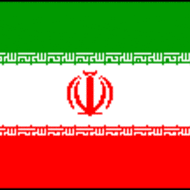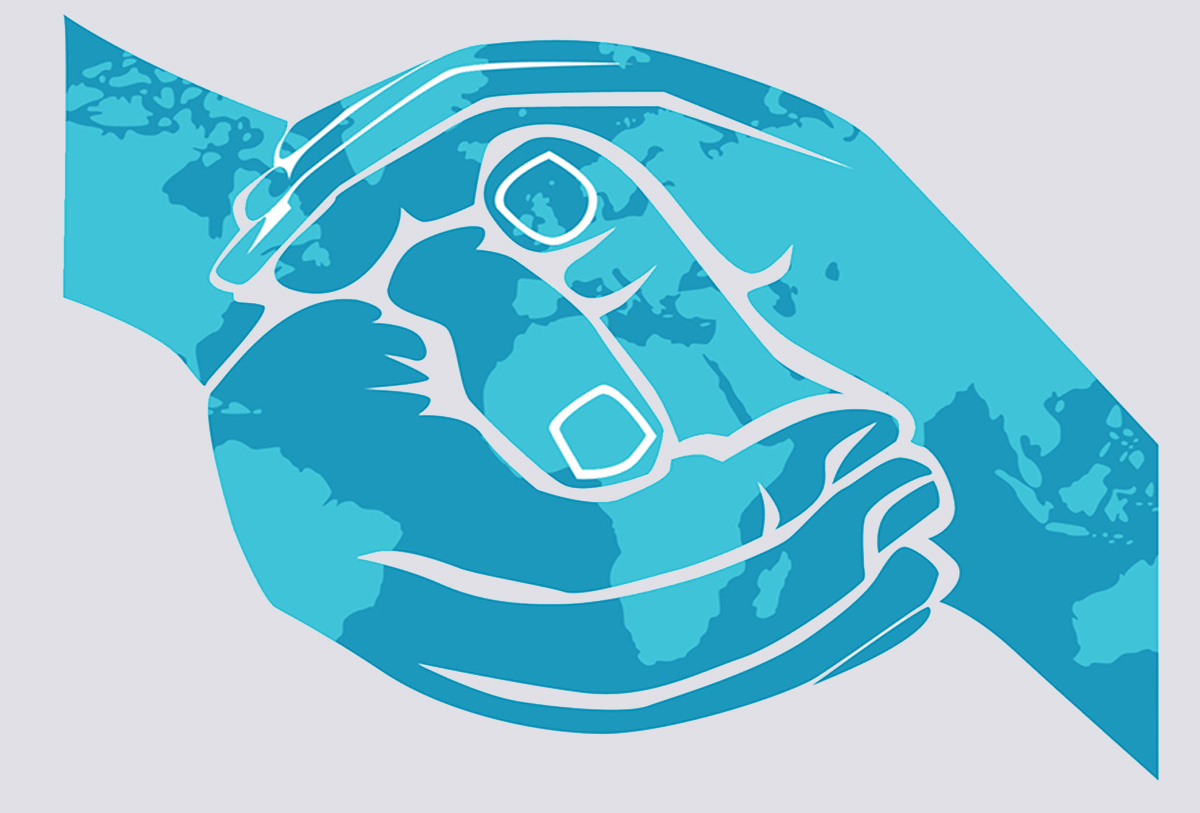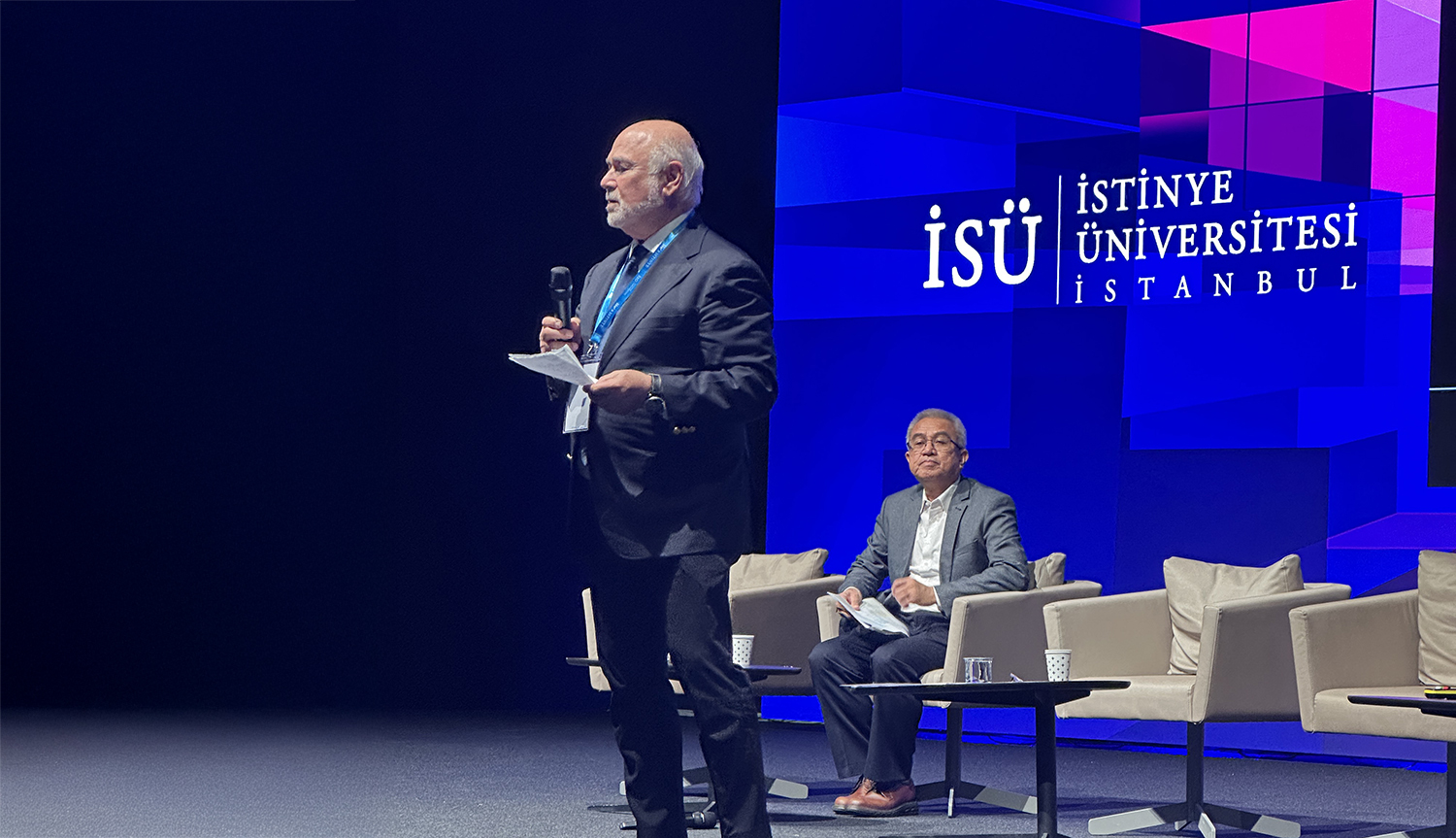Presentation before the Institute for Political and International Studies
of the Foreign Ministry of Iran
Tehran, Iran
March 9, 2008
International Conference on Iran’s Peaceful Nuclear Program and Activities:
Modality of Cooperation with the IAEA
Jonathan Granoff, President,
Global Security Institute
Yesterday was my first day in Iran. It was special because it was a day honoring the Prophet Muhammad and I was privileged to see the heartfelt devotion of the people of Tehran. It is my prayer that we all – the people of Iran, America, and everywhere — be blessed with the love that Jesus demonstrated, the wisdom of Moses and the beauty and unity of Muhammad. They all call us to become better human beings and to find ways to live together in peace.
The policy of attempting to influence the behavior of Iran through sanctions by the Security Council and Iran’s defiance of its resolutions calling for suspending the enrichment of uranium is not working to anyone’s benefit. International law is being corroded. Iran’s place of respect amongst the family of nations is not being properly obtained. The world is not made more secure.
This is particularly problematic because the logic behind the sanctions of the Security Council – that Iran has not provided sufficient confidence in the singularity of its civilian intentions of its nuclear program – is unlikely to change given Iran’s attitude and actions toward the UN Charter. Chapter 25 of the Charter recognizes the capacity of the Security Council to make decisions and compels Member States to abide by them. Iran is unlikely to change. Its leaders express a sense of being abused by a process they say is unjust because no substantive evidence has been produced that proves Iran’s plans to develop nuclear weapons and yet its rights under Article IV of the Nuclear Non-Proliferation Treaty (NPT) to peaceful uses of nuclear energy are constrained. Iran strongly asserts that they are fully honoring the IAEA process and that the Security Council resolutions are not legal.
Does this mean we should just throw up our hands in frustration while law is corroded, rhetoric heated up and armies and navies sit poised and at the ready? This dangerous situation must be peacefully resolved for the sake of us all.
Maybe a new realism needs to be invoked. I believe in the realism that led unexpectedly to the end of the malicious Cold War without violence. I believe in the realism that led so quickly to the end of horrific apartheid so peacefully. I believe in the realism that President Oscar Arias of Costa Rica demonstrated in forging a regional peace accord amidst extraordinary violence in El Salvador, Nicaragua, Honduras, and Guatemala. I believe in a realism that has confidence that when we walk with wisdom, humility, human unity and compassion, the grace of God is certain.
There is a schism in international relations that must be resolved. Let us seek a win-win-win approach. That win-win-win approach could include
- the acknowledgement of Iran’s rights under Article IV of the NPT;
- the creation with the IAEA and Iranian leadership of much more intrusive verification and monitoring measures to be applied universally to enhance non-proliferation efforts and lead to a nuclear weapons free world;
- multinationalization of Iran’s fuel cycle activities of concern;
- security assurances;
- expressed Iranian leadership in obtaining a Fissile Material Cut Off Treaty with effective verification;
- honoring of suspension demands of the Security Council resolutions while simultaneously bringing these decisions before the International Court of Justice for review; and,
- commencement of negotiations regarding a nuclear weapon-free Middle East amongst all relevant states, including non-NPT members.
These are but a few of the many positive steps that can be taken which meet important principles. They must enhance respect for international law, constrain universally the proliferation of nuclear weapons, and reinforce efforts leading to the abolition of nuclear weapons. These steps will help encourage Iran to take a leadership role in setting a global standard for inspections that ultimately will have to be applied universally, including to nuclear weapon states. They will also help in addressing the confidence deficit with real actions that build bridges through shared activities. This approach could give wins to Iran, the Security Council and the entire world.
Let us put this crisis in context. The greatest stimulus to the unacceptable spread of nuclear weapons is the intransigence of the nuclear weapon states to unequivocally move toward a nuclear weapons-free world based on legally verifiable elimination. As long as some countries have these weapons, others will want and eventually get them. Any use would be catastrophic and it simply defies reason to expect that these weapons will never be used, either by accident or foolish design. Thus, we must work together to obtain the abolition of nuclear weapons. It is heartening that recently Henry Kissinger, George Schultz, Sam Nunn and William Perry have taken up this charge to obtain the abolition of nuclear weapons. Iran has a foundation to contribute leadership in this work.
President Mahmoud Ahmadinejad stated before the UN General Assembly on September 17, 2005, “The Islamic Republic of Iran reiterates its previously and respectfully declared position that in accordance with our religious principles, pursuit of nuclear weapons is prohibited.”
With this in mind let me flesh out several suggestions:
- Negative and other security assurances: In 1995, the P-5 each offered assurances that NPT parties that renounce nuclear weapons would not be threatened by use of nuclear weapons against them. This was referenced in Security Council Resolution 984 and was instrumental in obtaining the indefinite extension of the NPT. These assurances must be embodied in positive international law through a formal legally binding instrument. Additionally all talk about regime change must cease and be replaced by efforts to change minds and policies through ongoing civil dialogue and diplomacy.
- Multinationalization of enrichment: Making Iran’s enrichment efforts multinational has been previously endorsed by Iranian leadership and has now been recently advocated by several very respected Americans – Ambassador Bill Luers, the President of the United Nations Association of the USA, (ret) Ambassador Thomas Pickering and Jim Walsh. They highlight that such an approach could help pave the way for Iranian membership in the World Trade Organization, increase trade with Europe, help access quickly advanced technologies. Iran could continue to run its existing facilities and centrifuges but management and operations would be shared by partner governments and any new technologies owned and managed jointly by the consortium.
- Additional Protocol Plus: This idea is being advanced by Gareth Evans, former Australian Foreign Minister and the President of the International Crisis Group as well as one of the driving visionaries of the prestigious Canberra Commission on the elimination of nuclear weapons. A system of verification and monitoring, going well beyond even the snap inspections and environmental sampling of the Additional Protocol, is needed to upgrade confidence in preventing the production of materials for weapons purposes. Such heightened levels of confidence are a requirement to move toward a nuclear weapons free world. I am suggesting Iran work directly with the IAEA to formally set up a new far more intrusive inspection, verification and monitoring regime that will set the standard for universal application. This will help the obtaining of a viable Fissile Material Cut-Off Treaty. It will make Iran a leader in efforts to stem proliferation. At the Conference on Disarmament in Geneva, the UK Defense Minister Des Browne recently called upon the P-5 to work for better verification to assist in disarmament efforts. Iran could contribute enormously by helping now with the creation of a new model to achieve greater confidence everywhere. This would certainly help bring greater trust in Iran as it contributes to a successful NPT Review Conference in 2010. Also, it will make us all safer.
During World War II, millions of Jews were annihilated in standing ovens. Nuclear weapons are ovens with wings which put six billion people at risk. Every citizen on Earth should be working together to eliminate this global menace amongst a set of other threats to our collective well-being.
The Nobel Peace Laureates, at a Summit in Rome this past December, where I had the privilege of representing the Nobel Laureate Organization the International Peace Bureau, asserted that along with working for the elimination of nuclear weapons, there must be cooperative efforts by all peoples to ensure the sustainability of the global commons – the climate, the oceans, the rainforests – the living systems upon which civilization depends. Additionally, the Laureates highlighted that to achieve the Millennium Development Goals and address poverty, new levels of cooperation will be required. They said that every political candidate must answer: What are your plans to eliminate poverty? What are your plans to protect the environment? What are your plans to eliminate nuclear weapons?
Political leaders in the US and Iran must soon learn to work together amongst all nations to answer these questions in practice. We live in a moment in history when the world craves moral leadership. This is both practical and morally compelling in the field of nuclear weapons but it is not just a technological or political challenge. It goes to our very humanity.
At the Millennium Peace Summit at the UN where about one thousand religious leaders gathered, an Eskimo elder said that his people had an oral history going back tens of thousands of years regarding the geography of the polar ice cap. He said that lakes were appearing where they do not belong and asked, “My brothers from the south have created technologies that are melting the ice at the North Pole. When will you develop a technology to melt the human heart?” From that good heart I pray that we succeed in obtaining new levels of trust and cooperation to meet our common concerns and fulfill our capacity to be truly human. Thank you deeply.
Jonathan Granoff is the President of the Global Security Institute, a representative to United Nations of the World Summits of Nobel Peace Laureates, a former Adjunct Professor of International Law at Widener University School of Law, and Senior Advisor to the Committee on National Security American Bar Association International Law Section.







